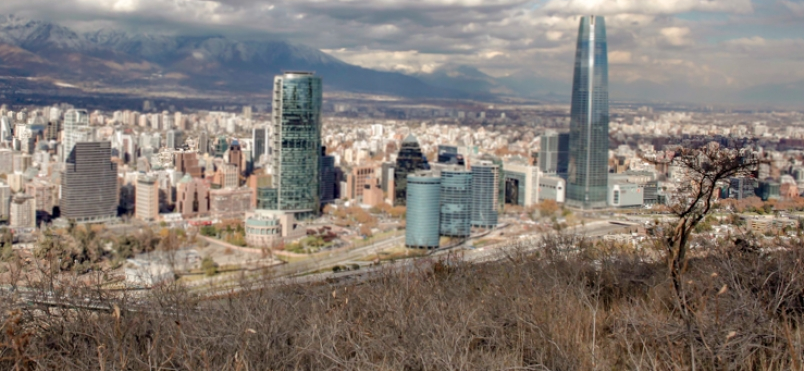
It rains a little more than 20 millimetres in Santiago and the city collapses. Flooded streets, overflowing canals and widespread cuts of electric light generated impacts on the population. Clearly the city has never been prepared to deal with such weather events and the authorities have become adeture in seeking culprits rather than performing a “mea culpa” for the territorial misplanning that has been held forever in our Country.
First, it is not new that Santiago is flooded with “strong” rainfall if the buffer zone of runoff is covered with cement. The andean mountain foot area is an area of deposition of materials carried by water from falling rainfall in the precordillera. However, over the past decade, this area has been over-exploited, a product of real estate projects that have changed the maximum level of construction, from 900 to almost 1,200 meters above sea level, with very poor planning in view of the sustainable development.
According to the Metropolitan Regulatory Plan of Santiago (PRMS) of 1994, in force to date, this area was defined as an ecological preservation area, and only scientific, cultural, educational or recreational enclosures can be built, but reality says otherwise. In this area, currently, there are about 476 built, which will, in the near future, have a great impact on the population that inhabits these areas of risk, the result of the occurrence of floods and increasingly latent swions related to climate change.
Second, it is also not new that during a frontal system the light is cut off, if the power line is 90% on the surface, with wires tied between branches of ageing trees. This is, again, poor territorial planning, where geographical reality is not considered when thinking about the growth of a city.
It was evident that the real estate explosion that Santiago has had in recent years, has forced the power companies to increase the connection to light, however, it cannot be that no one has thought of the vulnerability that it means to have the electrical lines in the surface, even more so when the issue of climate change has been raised by international organizations for more than 10 years. Requiring the undergroundness of cables now, ensuring the provision of one of the basic services of a community, is but a patchy measure of something wrongly done.
So is it reasonable to blame the Chilean Meteorological Directorate for the impacts suffered by the city, for failing to make accurate predictions as to the amount of precipitation expected – knowing the complexity of the highly dynamic phenomenon – and not to assume once and for all that the 8 or 23 millimeters of water drop is not responsible for power outages or channel overflows?
Until disaster risk is seen as a fundamental variable in Planning for Sustainable Development, the people of Santiago will remain highly vulnerable to the onslaught of nature, while all seek guilty and technologies that overcome the problems.
The content poured into this opinion column is the sole responsibility of its author, and does not necessarily reflect the editorial line or position of El Mostrador.
"El reclamo puede ser genuino, pero construido sobre una mentira", apuntó el presidente Javier Milei…
El gobernador de la provincia de Buenos Aires, Axel Kicillof, encabezó un acto en Ensenada…
El diputado nacional de La Libertad Avanza, José Luis Espert, expresó su confianza en la…
Tras la masiva reaparición de Cristina Fernández de Kirchner, el presidente Javier Milei apuntó contra…
El principal propósito de la nueva comisión es evaluar los recursos humanos en el Senado,…
En una medida que busca redefinir las condiciones de los seguros de automóviles en Argentina,…
Esta web usa cookies.